
AlphaLISA Human Monocyte Chemoattractant Protein-1 (MCP-1/CCL2) Detection Kit, 500 Assay Points

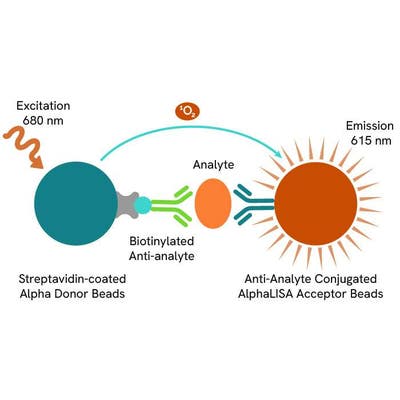
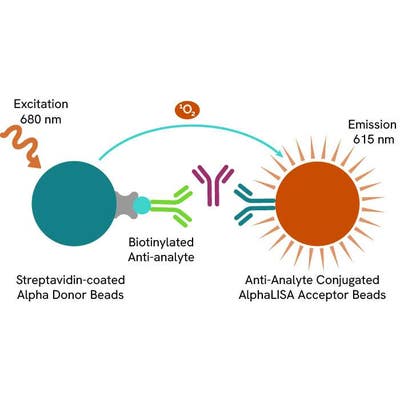 View All
View All
AlphaLISA Human Monocyte Chemoattractant Protein-1 (MCP-1/CCL2) Detection Kit, 500 Assay Points

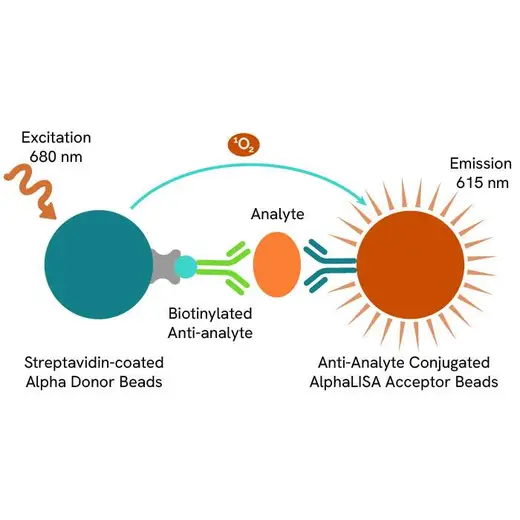
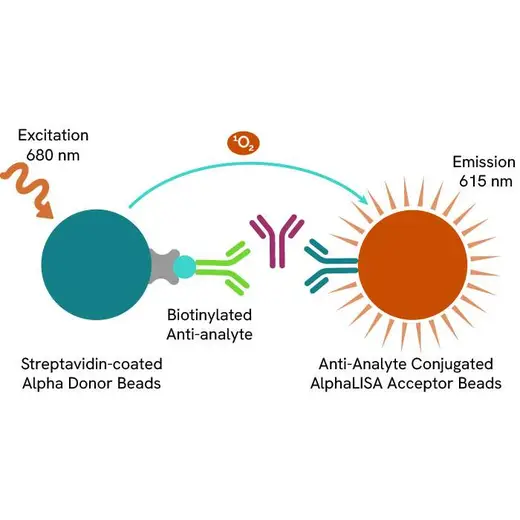





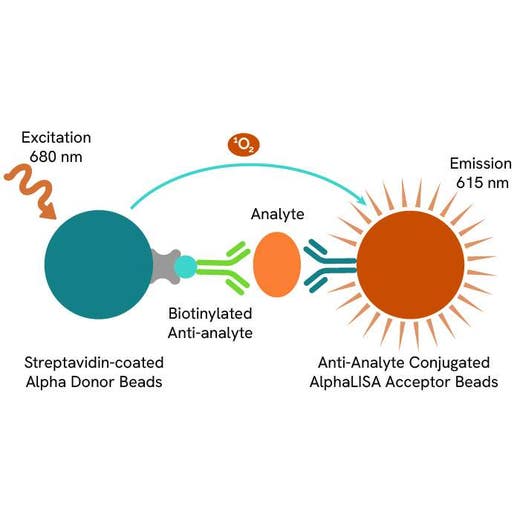
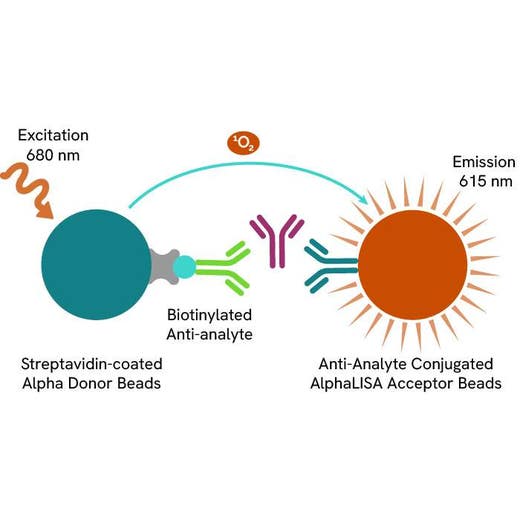




The AlphaLISA™ Human Monocyte Chemoattractant Protein-1 (CCL2 / MCP1) Detection Kit is designed for detection and quantitation of human CCL2/MCP1 in serum, buffered solution or cell culture medium in a homogeneous (no-wash steps, no separation steps) assay.
For research use only. Not for use in diagnostic procedures. All products to be used in accordance with applicable laws and regulations including without limitation, consumption and disposal requirements under European REACH regulations (EC 1907/2006).
| Feature | Specification |
|---|---|
| Application | Protein Quantification |
| Dynamic Range | 3.8 - 100,000 pg/mL |
| Limit of Detection | 3.8 pg/mL |
| Sample Volume | 5 µL |
The AlphaLISA™ Human Monocyte Chemoattractant Protein-1 (CCL2 / MCP1) Detection Kit is designed for detection and quantitation of human CCL2/MCP1 in serum, buffered solution or cell culture medium in a homogeneous (no-wash steps, no separation steps) assay.
For research use only. Not for use in diagnostic procedures. All products to be used in accordance with applicable laws and regulations including without limitation, consumption and disposal requirements under European REACH regulations (EC 1907/2006).







AlphaLISA Human Monocyte Chemoattractant Protein-1 (MCP-1/CCL2) Detection Kit, 500 Assay Points







AlphaLISA Human Monocyte Chemoattractant Protein-1 (MCP-1/CCL2) Detection Kit, 500 Assay Points







Product information
Overview
Formats:
- Our 500 assay point kit allows you to run 500 wells in 96-well or 384-well format, using a 50 µL reaction volume (5 µL of sample).
- Our 5,000 assay point kit allows you to run 5,000 wells in 96-well or 384-well format, using a 50 µL reaction volume (5 µL of sample).
Features:
- No-wash steps, no separation steps
- ELISA alternative technology
- Sensitive detection
- Broad sample compatibility
- Small sample volume
- Results in less than 3 hours
- Half the time of an ELISA assay
C-C motif chemokine 2 (CCL2) or Monocyte Chemoattractant Protein 1 (MCP1) contains 76 amino acids and is glycosylated after complete processing. CCL2 is part of the CXC subfamily of cytokines. Fibroblasts, tumor cells, smooth muscle cells, endothelial cells, and mononuclear phagocytes can produce CCL2 either constitutively or upon stimulation. CCL2 displays chemotactic activity for monocytes and basophils, but not for neutrophils or eosinophils. It also regulates adhesion molecule expression and cytokine production in human monocytes. CCL2 has been implicated in the pathogenesis of diseases characterized by monocytic infiltrates, like psoriasis, rheumatoid arthritis and atherosclerosis. CCL2 is considered as an important biomarker in cardiovascular diseases.
AlphaLISA technology allows the detection of molecules of interest in a no-wash, highly sensitive, quantitative assay. In an AlphaLISA assay, a biotinylated anti-analyte antibody binds to the Streptavidin-coated Donor beads while another anti-analyte antibody is conjugated to AlphaLISA Acceptor beads. In the presence of the analyte, the beads come into close proximity. The excitation of the Donor beads causes the release of singlet oxygen molecules that triggers a cascade of energy transfer in the Acceptor beads, resulting in a sharp peak of light emission at 615 nm.
Specifications
| Application |
Protein Quantification
|
|---|---|
| Automation Compatible |
Yes
|
| Brand |
AlphaLISA
|
| Detection Modality |
Alpha
|
| Dynamic Range |
3.8 - 100,000 pg/mL
|
| Limit of Detection |
3.8 pg/mL
|
| Product Group |
Kit
|
| Sample Volume |
5 µL
|
| Shipping Conditions |
Shipped in Blue Ice
|
| Target |
CCL2
|
| Target Class |
Cytokines
|
| Target Species |
Human
|
| Technology |
Alpha
|
| Therapeutic Area |
Inflammation
|
| Unit Size |
500 Assay Points
|
Image gallery






AlphaLISA Human Monocyte Chemoattractant Protein-1 (MCP-1/CCL2) Detection Kit, 500 Assay Points






AlphaLISA Human Monocyte Chemoattractant Protein-1 (MCP-1/CCL2) Detection Kit, 500 Assay Points






Video gallery

AlphaLISA Human Monocyte Chemoattractant Protein-1 (MCP-1/CCL2) Detection Kit, 500 Assay Points

AlphaLISA Human Monocyte Chemoattractant Protein-1 (MCP-1/CCL2) Detection Kit, 500 Assay Points

Resources
Are you looking for resources, click on the resource type to explore further.
Cytokines play a vital role in both innate and adaptive immunity and are known for their ability to exert diverse functions on...
Advance your autoimmune disease research and benefit from Revvity broad offering of reagent technologies
Chimeric antigen receptor (CAR) T-cell therapy has transformed the field of immuno-oncology providing a novel approach to treating...


How can we help you?
We are here to answer your questions.






























